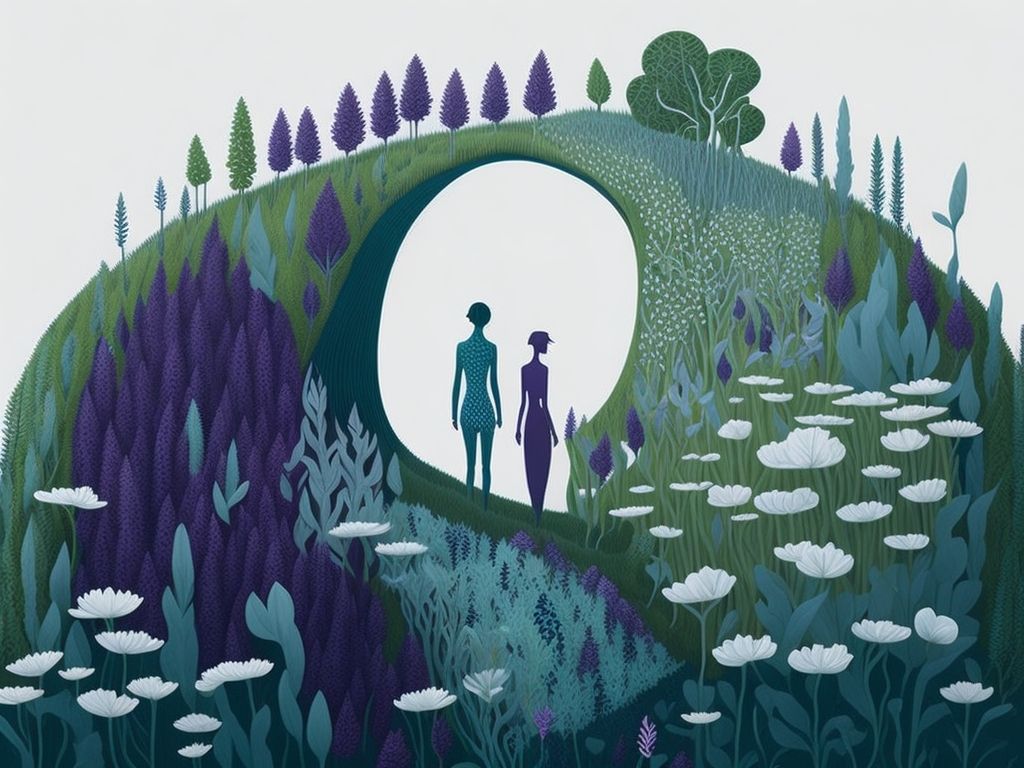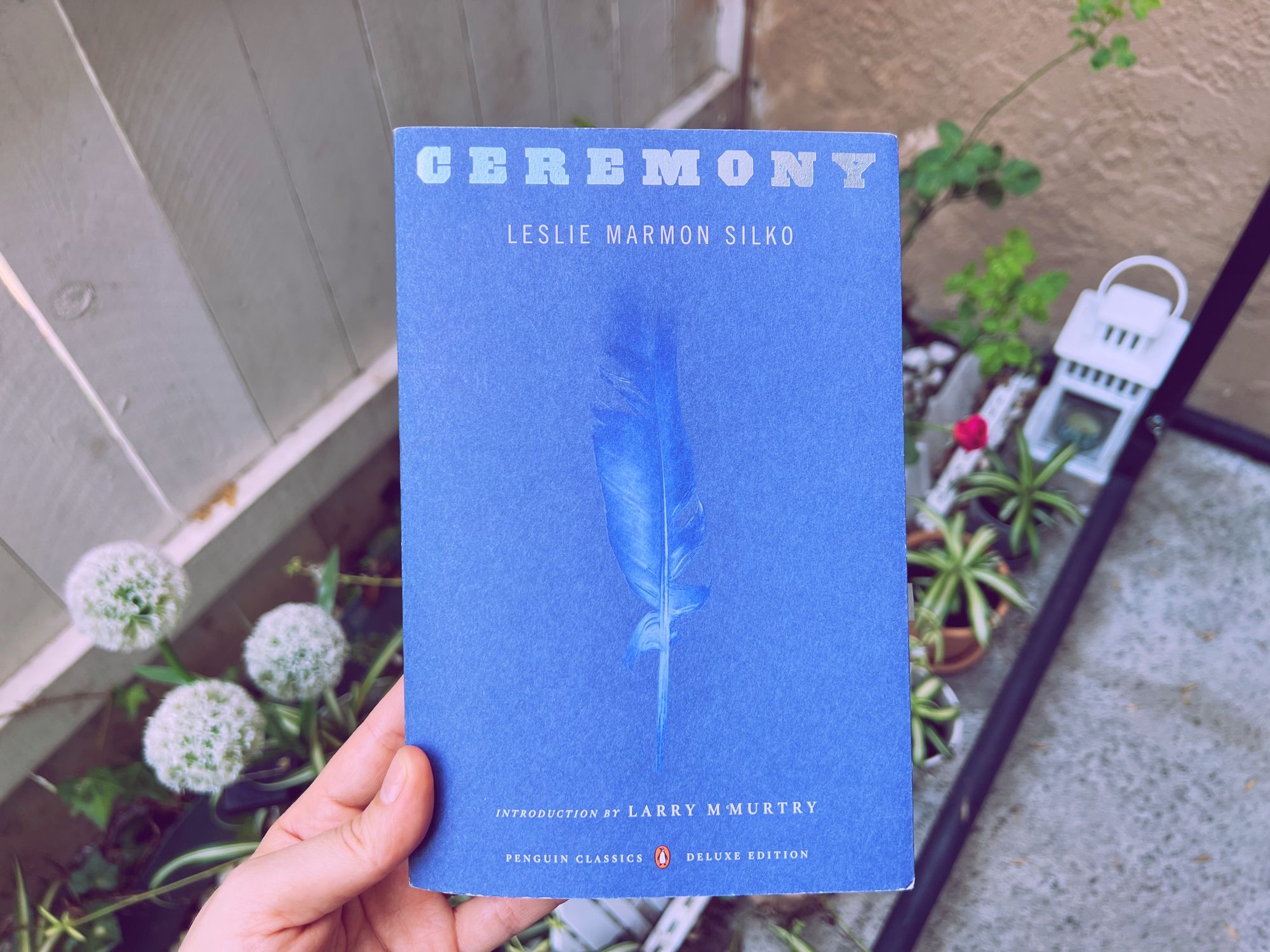"Mental Distress" vs. "Mental Illness": The Interplay of Self and Environment in Mental Health Conversations
Unlock holistic mental health – explore the link between self, environment, mental distress, and collective responsibility in 'Ceremony' by Leslie Marmon Silko. Discover how language shapes our view of well-being.

In Leslie Marmon Silko's novel Ceremony, the intricate tapestry of Native American storytelling confronts Western paradigms, challenging our notions of mental health and the environment's role in it. As we delve into this narrative that bridges the gap between oral tradition and the written word, we discover a multi-layered story and profound insights into the connections between the self, society, and the world.
In our exploration, we'll also examine an essay by Marina Morrow, who suggests a change in terminology – from "mental illness" to "mental distress" – to reshape our perspectives on what we commonly label as 'madness.'
Let's embark on this exploration as we navigate these thought-provoking themes and uncover the profound implications they hold for our understanding of mental health and the collective responsibility of society.
The Novel

The novel challenges conventional Western thinking by seamlessly weaving Native American oral tradition into the written word, traversing multiple timelines. Silko's work provokes profound questions about the boundaries between the self and the environment while emphasizing the interconnectedness of all life forms. These themes resonate with modern discussions about the environment's impact on mental health, as illustrated in a LA Times article documenting a California tribe's efforts to combat a suicide epidemic.
What If We Call It “Mental Distress” instead of “Mental Illness”
As we delve deeper into the themes of interconnectedness and mental health, we turn to Marina Morrow's essay, "Recovery: Progressive Paradigm or Neoliberal Smokescreen." In Morrow's thought-provoking work, she examines the lives of individuals diagnosed with mental distress, shedding light on the discrimination they often face. Morrow's perspective challenges conventional terminology, opting for "mental distress" over "mental illness." This linguistic shift invites us to explore how our environment can contribute to emotional struggles, aligning with the themes we encounter in Ceremony.
In her essay, Marina Morrow, an Associate Professor in the Faculty of Health Sciences and the Director of the Center for the Study of Gender, Social Inequities, and Mental Health at SFU, observes that "people diagnosed with mental illness lead lives marked by discrimination." While this observation may not be a revelation, Morrow takes it further by suggesting that casually labeling this phenomenon as "mental illness" perpetuates stigma. Instead, she opts for the term "mental distress."
While this linguistic change alone cannot resolve all the complex issues related to mental health, it does transform our perspective on "madness." "Mental distress" implies the influence of external factors, shifting the focus and blame away from the individual and challenging the norms of society. It suggests that the environment may bear some responsibility, at least in part, for mental distress, which, in turn, means the environment can play a role in recovery.
As Silko reminds us, "His sickness was only part of something larger, and his cure would be found only in something great and inclusive of everything" (p.116). This implies that society must take responsibility for individuals in distress because what was formerly referred to as "mental illness" is merely a symptom of more extensive societal issues.
Everyone is a Patient. Everyone is a Doctor
If we do not treat a person’s suffering as an illness, we might be able to see that not only a doctor can help
There may be room for disagreement regarding the interconnected nature of mental distress. The Cartesian concept of the modern individual appears to challenge my standpoint, as it distinguishes the Cartesian Other from the Cartesian Self. René Descartes, famous for his declaration "I think, therefore I am," asserts that there exists "an intrinsic divide within human consciousness, preventing any bridging of the gap between one's own consciousness and that of another."
However, accepting Descartes' perspective amounts to rejecting the existence of empathy, care, and love. Furthermore, his argument, which denies the possibility of comprehending anything beyond the self, inadvertently suggests the potential for complete self-knowledge, a notion effectively debunked by psychoanalytic theories.
Despite psychiatry's insistence that individuals "would never get well as long as he [or she] use[s] words like ‘we’ and ‘us’" (Silko p.116), my exploration of recovery in Ceremony yielded different insights: "The people must do it. You must do it" (p.115); "And there would be no peace, and the people would have no rest until the entanglement had been unwound to the source" (p.64).
In Conclusion
In this exploration of mental distress and its portrayal in Leslie Marmon Silko's Ceremony, we've delved into the profound connections between individual experience, societal responsibility, and the environment. The contrast between the Western notion of the isolated self and the Indigenous perspective of interconnectedness challenges us to reconsider the language we use to describe mental struggles.
By adopting terms like "mental distress" instead of "mental illness," we shift the focus from the individual to society and the environment, opening doors to more compassionate approaches. Silko's narrative, while firmly rooted in Native American storytelling traditions, echoes universal truths about our collective responsibility to heal and create environments where mental wellness can thrive.
As we continue these conversations, let us recognize that every word we choose and every story we share can shape a more inclusive and empathetic future for mental health.
"Lunatic Fringe" by Red Rider: A rock classic that explores the concept of being on the fringes of society, often seen as a form of madness